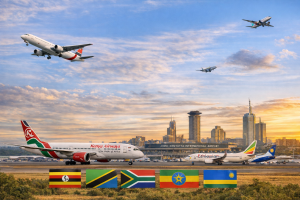There’s no easy fix after embassies were forced to close, or suffer staff shortages due to Covid outbreaks. Patience will be needed.
The situation on the ground in China isn’t ideal as the country readies to remove its travel restrictions this weekend.
The head of one major corporate travel agency, based in Shanghai, has warned that companies wanting to restart business trips will face delays because employees will struggle to secure the right travel documents.
“China has suspended passport renewals in the past three years, so now travelers are rushing to have their new passports issued,” said Jonathan Kao, managing director, Greater China at BCD Travel.
“Visas are also an issue as most have expired and some of the major embassies, like the U.S., Germany and Japan, were closed in the last few weeks due to increasing cases of Covid in China leading to staffing issues,” he added.
Corporate travel agency CWT also said many embassies were not operating and processing at pre-pandemic levels, causing significant delays with visa applications.
It looks set to hamper travel to and from China, compounded by other countries requiring pre-arrival PCR tests, and company travel managers are wary despite the doors being flung open.
“Some of our buyer members have issued a company-wide travel advisory as of Jan. 5 restricting travel to and from China to business critical only, and with the approval of their company’s China crisis management team,” said Scott Davies, CEO of the UK’s Institute of Travel Management. “Other buyers are continually evaluating the situation and will make adjustments as necessary in conjunction with their business risk and compliance departments.”
However, he said the overall lifting of Covid restrictions for international travel to China, and the fast-changing Covid-19 test regulations for inbound travelers from China to Europe, had not really presented any major challenges for most travel managers as they became used to similar complexities during the pandemic.
Slow and Steady
Yet while many countries faced severe airline capacity and staffing issues after easing their own border restrictions last year, China is taking a more measured approach with the aviation regulator aiming to gradually reach 75 percent of pre-pandemic traffic in 2023.
“Airlines have been adding new flights in the past few weeks, so this is becoming less of a problem,” BCD Travel’s Kao said. “The prices have actually come down somewhat compared to the month before due to the increase in flights.”
He also pointed to the removal of the country’s “circuit breaker” mechanism, meaning no flights have been forced to be cancelled due to large number of confirmed Covid cases. However, he said average international ticket price continued to be three times more than in 2019.
The prognosis is different at American Express Global Business Travel.
“We expect international capacity recovery will be slow, at around just 12 percent of 2019 available seat miles for the first half of this year,” noted Dan Beauchamp, head of global business consulting, Europe, the Middle East and Africa. “International flight options are therefore likely to be limited and fares high, and the situation is unlikely to improve much in the short-medium term.”
There are also ongoing tensions between the U.S. and China regarding routes.
At Spanish corporate travel agency TravelPerk, routes from Germany and Netherlands have showed the largest increase in booking volumes so far.
“It is too early to evaluate the impact of the new travel restrictions set by European Union countries and others, and whether this will knock traveller confidence and ultimately bookings,” said Huw Slater, chief operating officer.
Source: Skift






